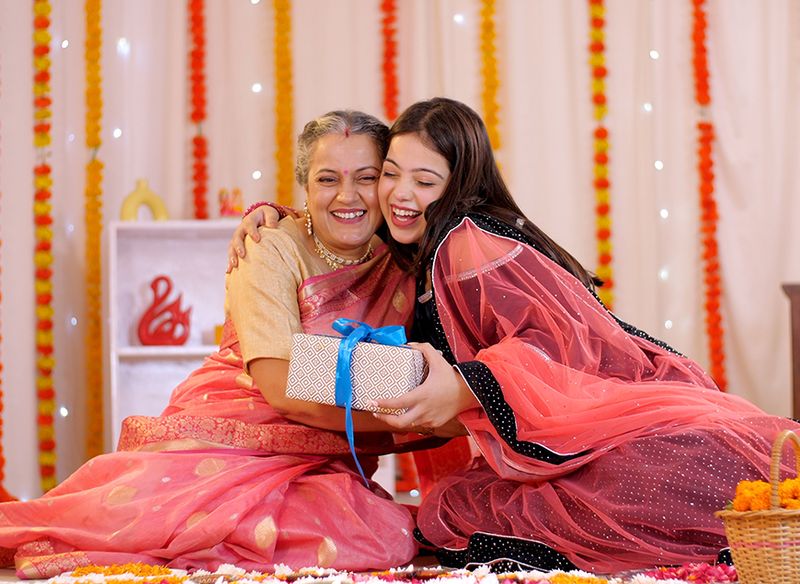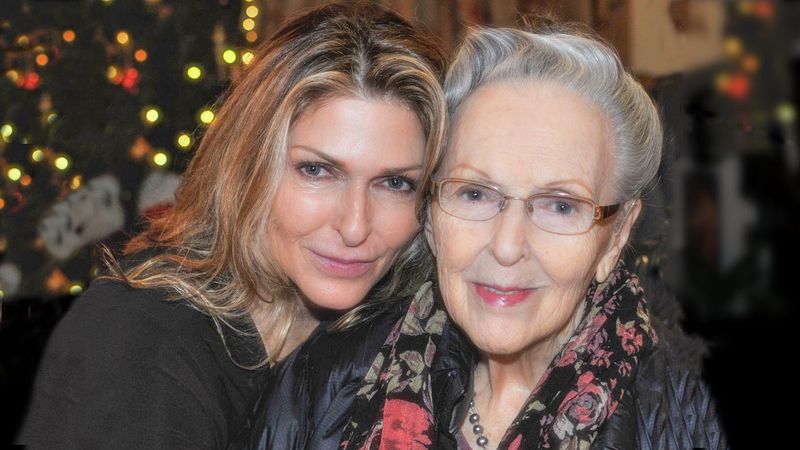18 Reasons Why Mother’s Day Is Bittersweet After You Turn 50
Reaching the age of 50 transforms many aspects of life, including how Mother’s Day is experienced. This day, which was once filled with simple joys and uncomplicated celebrations, becomes a complex tapestry of emotions, memories, and reflections.
As a person crosses this significant age threshold, Mother’s Day serves as both a reminder of what has been lost and a celebration of what remains.
It becomes a day for introspection, where the roles of mother and child have evolved, and new layers of meaning are added to this special occasion. Here are 18 reasons why Mother’s Day carries a bittersweet flavor after you turn 50.
1. You’ve lost your mom—or parts of her

Losing a mother or witnessing her decline is profoundly affecting. Memories of her strength, wisdom, and love surface, mingled with the pain of her absence. Each photo or shared story is a reminder of what once was.
Her voice echoes in your mind, guiding you even when she’s no longer there. It’s a day to honor her legacy, celebrate her lasting impact, and mourn the gradual fading of her presence.
The void left behind is significant, a tender spot in the heart. Mother’s Day becomes a time for quiet reflection, remembering her influence and cherishing the times shared.
2. Your kids aren’t kids anymore

Mother’s Day once filled with sticky fingerprints and juvenile giggles now echoes with adult conversations and shared wisdom. Children grow, each milestone marking a shift in dynamics.
While the essence of motherhood remains, the roles transform. You’re no longer just the caretaker but a confidant, mentor, and friend. Watching them forge their paths, pride intermingles with a longing for their childhood innocence.
This evolution captures the heart of the bittersweet nature of Mother’s Day at 50. The memories of their early years blend with the reality of the present, a poignant reminder of time’s relentless march.
3. You carry both pride and grief at once

Motherhood is a tapestry woven with threads of pride and grief. At 50, these emotions become more pronounced, as the celebration of children’s accomplishments is tinged with nostalgia.
Every achievement is a testament to the sacrifices and guidance provided over the years. Yet, each proud moment is shadowed by the passage of time, a reminder of the fleeting nature of childhood.
It’s a balancing act of celebrating successes and quietly grieving the days gone by. This duality makes the day a complex emotional experience, a mirror reflecting both joy and the gentle sorrow of memories.
4. You miss when the day was simple

Once, Mother’s Day was straightforward—handmade cards, breakfast in bed, and cuddles from little ones. Now, layers of complexity add depth to the occasion.
Simpler times are cherished memories, where the day’s joy was untainted by life’s responsibilities. The simplicity of those days is often missed, as it becomes a time to reflect on the passage of time.
The nostalgic yearning for these uncomplicated moments underscores the bittersweet nature of the celebration, highlighting the evolution of maternal relationships from innocence to intricate bonds.
5. You think more about legacy than presents

Turning 50 shifts focus from receiving gifts to pondering legacy. Mother’s Day becomes a canvas to paint the enduring impact and values left for future generations.
It’s a day to reflect on the influence exerted on children and grandchildren, the traditions passed down, and the wisdom imparted. The desire to leave a meaningful footprint grows stronger.
The materialistic aspect fades, replaced by the importance of values and memories. This introspection adds a layer of depth to the celebration, enriching the experience with purpose and meaning.
6. You start to see yourself in your mother—even the hard parts

Reaching 50 often brings the realization of how much you’ve become like your mother, embracing both her strengths and challenges. This recognition can be enlightening and unsettling.
You inherit her traits, seeing her in your actions, words, and even in the mirror. The reflection is a blend of admiration and the acknowledgment of imperfections.
Mother’s Day becomes a time to honor this connection, celebrating the continuity of familial ties. It’s a moment of acceptance, understanding that these shared traits form the tapestry of identity and shared history.
7. You wonder if you did enough

The milestone of 50 sparks introspection, questioning if enough was done as a mother. Each photo and memory brings pride, but also the inevitable ‘what ifs.’
Mother’s Day is a time for reflection on the successes and perceived shortcomings. The desire to have done more, given more, or been more is a common sentiment.
This self-reflection adds a poignant layer to the day, a reminder of the complexities of motherhood. It’s both a celebration of achievements and a contemplation of the ongoing journey of parenthood.
8. You recognize your own need for care

At 50, the need for self-care becomes apparent. Mother’s Day is a reminder that nurturing oneself is as important as caring for others.
This recognition comes from years of prioritizing family, often at personal expense. Embracing this need doesn’t diminish love for family but enhances personal well-being.
Acknowledging this shift is empowering, highlighting the importance of balance in life. Mother’s Day evolves into a celebration of both giving and receiving care, an essential part of aging gracefully.
9. You stop needing the “perfect” celebration

With age comes wisdom, including the realization that perfection is an illusion. The pressure for a flawless Mother’s Day fades, replaced by appreciation for genuine moments.
The focus shifts from orchestrated events to authentic experiences. A simple gesture, a heartfelt conversation, or a quiet moment becomes more meaningful.
This evolution reflects a maturity that embraces imperfections and cherishes real connections. Mother’s Day becomes a day of gratitude and contentment, valuing sincerity over spectacle.
10. You feel invisible in the chaos of younger families

Amidst the vibrant energy of younger families celebrating Mother’s Day, a sense of invisibility can emerge. The bustling joy of others contrasts with a quieter, introspective celebration.
This feeling of being unnoticed can be poignant, as attention often shifts to younger generations. Yet, it offers an opportunity for reflection and gratitude for the journey traveled.
Mother’s Day becomes a time to honor one’s own path, acknowledging the wisdom and experiences gained. It’s a reminder that every stage of life holds its unique beauty and challenges.
11. You realize how little time there might be left

Mother’s Day at 50 sharpens the awareness of life’s limited time. Each celebration is precious, a chance to express love and gratitude.
This realization adds urgency to relationships, encouraging open expressions of affection and appreciation. It emphasizes the importance of savoring each moment and cherishing connections.
The day becomes a gentle reminder to live fully, embracing the present while honoring the past. It’s a time to focus on what truly matters, deepening bonds with loved ones.
12. You think about the moms who had no support

Mother’s Day sparks empathy for those who navigated motherhood without support. The strength and resilience of these women become a source of admiration.
Reflecting on their struggles highlights the importance of community and the often-overlooked challenges mothers face. It’s a day to honor their sacrifices and recognize the collective strength of motherhood.
This compassion adds depth to the celebration, reinforcing the importance of support and solidarity among mothers. It’s a tribute to those who persevered, often without acknowledgment.
13. You grieve what your own mother never healed

Mother’s Day can unearth grief for the wounds your mother never healed. Her struggles, often hidden behind a brave face, become apparent as you age.
Recognizing her pain provides insight into her actions and decisions, fostering empathy and forgiveness. It’s a time to mourn what was lost or never addressed.
This understanding enriches your own journey, reinforcing the importance of healing and growth. It’s a poignant reminder of the complexities of mother-daughter relationships.
14. You see how motherhood aged you—and shaped you

Motherhood leaves its mark, etching lines of love and experience into your being. At 50, the physical and emotional impact of motherhood becomes clear.
Every challenge faced and triumph celebrated has contributed to the person you’ve become. The journey, though demanding, has been transformative.
This realization is empowering, acknowledging the resilience and growth that motherhood fosters. It’s a day to celebrate the strength and wisdom gained, despite the visible signs of aging.
15. You question what kind of mother you were

Reaching 50 prompts introspection about the kind of mother you’ve been. Doubts and reflections surface, mingling with pride in achievements.
Every decision and action is weighed, questioning if they were right. This self-examination, though challenging, is part of the ongoing journey of growth.
Mother’s Day becomes a time for self-compassion and acceptance, understanding that imperfection is natural. It’s a celebration of effort, love, and the continuous evolution of motherhood.
16. You feel closer to your mom after she’s gone

The absence of a mother can create a surprising closeness. Memories become treasures, keeping her spirit alive and fostering a deeper connection.
Mother’s Day becomes a time to honor this bond, celebrating her influence and the lessons imparted. Her presence is felt in small gestures and shared memories.
This connection provides comfort and strength, reinforcing the enduring impact of maternal love. It’s a bittersweet celebration of a bond that transcends time.
17. You’ve learned to celebrate quietly, without expectation

Mother’s Day evolves into a time of quiet celebration, free from expectations and focused on gratitude. Simple joys and moments of peace become cherished highlights.
The pressure to meet expectations diminishes, replaced by the appreciation of what truly matters. It’s a time to reflect on personal growth and the journey of motherhood.
This quiet celebration is fulfilling, emphasizing the value of inner peace and contentment. It’s a day to honor oneself and the unique path traveled.
18. You realize this role changes—but never ends

Motherhood is a role that evolves but never concludes. At 50, the permanence of this identity becomes clear.
Responsibilities shift, but the essence of being a mother remains unchanged. It’s a continuous journey of love, guidance, and support.
Mother’s Day highlights this enduring role, celebrating the adaptability and steadfastness required. It’s a day to embrace the lifelong commitment and the boundless love it encompasses.






